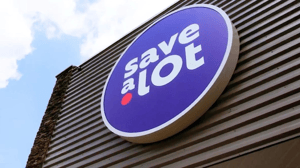What Grocers May Not Know About the New Farm BillWhat Grocers May Not Know About the New Farm Bill
The banning of EBT processing fees and new tools for retailers to help SNAP shoppers make healthier choices are among the highlights. The pending legislation bans EBT processing fees and includes new tools for retailers to help SNAP shoppers make healthier choices.

While work requirements for SNAP recipients, farmer’s issues and hemp legalization have been among the major talking points of the $867 billion 2018 Farm Bill, which was passed in the Senate and House this week and seems to be in good standing with President Trump, what it would mean for retailers has been largely overlooked.
According to Hannah Walker, Food Marketing Institute’s senior director of technology and nutrition policy, it is largely good news. As such, FMI's official statement after the bill's passage in the House applauded that it leverages technology to better serve shoppers, "while protecting retailers from unfair and predatory interchange and processing fees" and also "encourages creative proposals from retailers who would like to incentivize SNAP customers to buy more fresh fruits, vegetables, milk and whole grains in addition to permanently authorizing the Food Insecurity Nutrition Incentive program (FINI)."
On the other hand, the National Grocers Association said in an official statement that while it was pleased with the fact that the bill strengthens the public-private partnership between the federal government and supermarket operators in the SNAP program and addresses issues such as the SNAP processing fees and FINI, a top priority to protect store-level SNAP sales data was not included.
"We will work closely with Congress and industry stakeholders to identify viable solutions to ensure that private information that could be used to give competitors an unfair advantage, particularly over many small and medium-size grocers, is protected from public disclosure," the statement read.
In an interview with WGB, Walker, who was heavily involved in the bill’s drafting, provided the following reasons why she believes that the pending bill is “really great for the industry”:
Bans Electronic Benefits Transfer (EBT) Processing Fees
Processing fees are a significant financial burden to retailers in general, but what Walker calls a “loophole” in the past Farm Bill allowed this burden to spread to EBT transactions. The previous bill included “language that was never supposed to open [the industry] up to SNAP processing fees,” according to Walker, but ended up opening the door for routing fees and gateway fees to be imposed on SNAP transactions. The 2018 Farm Bill has revised the terminology to FMI’s House bill language to prohibit state EBT processors and subcontractors from charging retailers a fee for switching or routing a transaction, a victory that Walker said was one of FMI’s top priorities. The new bill also directs the secretary to provide guidance for retailers on how to select EBT equipment and service providers and allows the secretary to request that applicant retailers provide records relating to EBT contracting and equipment purchasing.
Modernizes EBT
The new bill authorizes online SNAP sales, which Walker said would be beneficial to individuals on SNAP, such as working parents and the elderly, as it could allow groceries to be delivered to their homes or made available for curbside pickup. The bill also allows for mobile EBT payments, although neither of these technologies have yet to be launched. “It’s going to be cool to see how this changes in the innovation space for SNAP over the next five years,” Walker said.
Helps Retailers Offer Health-Focused Incentive Programs to Shoppers on SNAP
Retailers are required to treat SNAP recipients equally to all other shoppers, which prohibits mistreatment of these individuals but also means that grocers may not, for example, “offer a free toaster” to SNAP recipients who shop at a store, as Walker explains, adding that “you don’t want to stigmatize certain customers and you want them to have the same shopping experience.” However, retailers can request waivers to help encourage the purchase of healthier items through incentives. For example, Walker said that one retailer offered a coupon for whole-grain tortillas to SNAP recipients who purchased flour tortillas. While the waiver program already exists, the 2018 Farm Bill requires the secretary to provide guidance and education to retailers on how to request such waivers and use them optimally.
Reauthorizes Food Insecurity Nutrition Incentive (FINI) Program Grants
FINI, which provides grants to incentivize consumers to purchase more fresh items, was piloted in the previous Farm Bill and has now been reauthorized. Walker says a great example of the program’s success is work done by Kroger in the Mississippi/Arkansas area to double the buying power SNAP recipients have when purchasing fresh items through the Double Up Food Bucks program. In the new bill, retailers that are open more days per year, and for longer hours, are given preference for these grants in a move championed by FMI. The bill provides mandatory funding of $45 million for fiscal year 2019, $48 million for both fiscal year 2020 and 2021, $53 million for fiscal year 2022, and $56 million for fiscal year 2023 and each fiscal year thereafter.
Allows Workforce Partnerships
While controversial increased work requirements for SNAP recipients was a significant topic of debate during the drafting of the 2018 Farm Bill, the final version of the bill, which ended up leaving them out, allows retailers as well as other private employers and nonprofits to help SNAP recipients accomplish their required 20 hours of work per week through “training, work or experience.” Walker said that this was something that the Senate agriculture committee actually brought to FMI as an idea, and it could be beneficial to the grocery industry as they are “always looking for new workers.”
About the Author
You May Also Like






